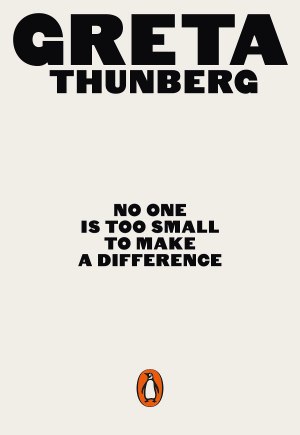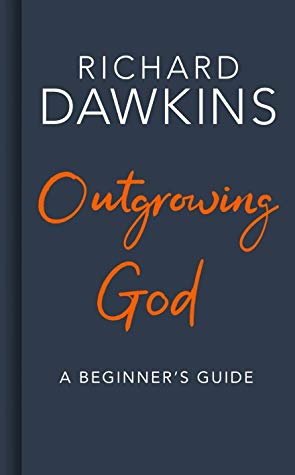Additions to the 2020 Book List.
No One Is Too Small To Make A Difference (2019) by Greta Thunberg
 This is barely a book; it is a short collection of Thunberg’s various speeches. They are all very similar and at times have whole sections repeated nearly verbatim. But that is to be expected when you are trying to give the same message to different audiences. But they are worth reading to get a sense of the desperation and urgency of the climate crisis; something which is not conveyed by most politicians.
This is barely a book; it is a short collection of Thunberg’s various speeches. They are all very similar and at times have whole sections repeated nearly verbatim. But that is to be expected when you are trying to give the same message to different audiences. But they are worth reading to get a sense of the desperation and urgency of the climate crisis; something which is not conveyed by most politicians.
I have a huge amount of respect for Greta Thunberg and I think it is terrible the way she has been treated and attacked by various people. She actually has the courage and conviction to stand up for her beliefs. This is in stark contrast to most politicians who are careful not to say anything too controversial with the public that will lose them support. And in contrast with many businessmen whose only interest seems to be how the economy is doing in the present. We need people like Thunberg who are not only focussed on the present but considering how our actions here today will affect the future. And, for those that would dismiss her just because she is a child, she is merely repeating what climate scientists are saying and have been saying for a while now. If we would listen to the scientists in the first place, we wouldn’t need a child to come and tell us what needs to be done.
Having finished this book just recently, I couldn’t help but comparing the way two different crises are being covered. Thunberg says how strange it was first learning about climate change because “if it was really happening we wouldn’t be talking about anything else. As soon as you turn on the TV everything would be about that. Headlines, radio, newspapers, you would never read or hear about anything else.” That’s how the corona virus is being covered! It’s strange that this one virus is getting all this attention while climate change is hardly covered in comparison. Is it just the speed? Frankly the media needs to drastically step up how it covers climate change if we are going to make the required progress.
Outgrowing God: A Beginner’s Guide (2019) by Richard Dawkins
 Outgrowing God is divided into two sections, the first of which directly addresses religion and The Bible. It’s the same arguments that always come up but in a simplified form. Although I knew most of what was discussed, there were a few interesting surprises, particularly the section on the non-canonical gospels and the stories they told about Jesus’ (alleged) early life.
Outgrowing God is divided into two sections, the first of which directly addresses religion and The Bible. It’s the same arguments that always come up but in a simplified form. Although I knew most of what was discussed, there were a few interesting surprises, particularly the section on the non-canonical gospels and the stories they told about Jesus’ (alleged) early life.
The second section of the book is devoted to evolution and how it removes the need for a god in explaining the apparent design and diversity of life. From time to time, I found some new and interesting information but I felt the section was let down by being oversimplified and labouring each point to death.
Aside from one book (which has been sitting on my shelf for the past two or three years), I have read every single one of Dawkins’ books. This is not one of my favourites. Nearly everything has been covered before, and much better, in his previous books. The two sections also feel quite disjointed and could’ve been better integrated. While I really enjoyed the pacing and crescendo of the final chapter, the book as a whole felt lacking. That said, I am not the target audience and perhaps those that are less familiar with the topics will benefit from it more.


 Black Leopard Red Wolf (2019) by Marlon James
Black Leopard Red Wolf (2019) by Marlon James The Four Horsemen: The Conversation That Started An Atheist Revolution (2019) by Richard Dawkins, Daniel Dennet, Sam Harris & Christopher Hitchens
The Four Horsemen: The Conversation That Started An Atheist Revolution (2019) by Richard Dawkins, Daniel Dennet, Sam Harris & Christopher Hitchens I got this one for Christmas. It’s a collection of essays, written by an Israeli historian, covering various topics, including truth, religion, terrorism, equality, war and education. Nearly all of the essays are interesting and raise many questions worth pondering. It’s a lot shorter on answers than questions but it certainly stimulates the mind.
I got this one for Christmas. It’s a collection of essays, written by an Israeli historian, covering various topics, including truth, religion, terrorism, equality, war and education. Nearly all of the essays are interesting and raise many questions worth pondering. It’s a lot shorter on answers than questions but it certainly stimulates the mind.